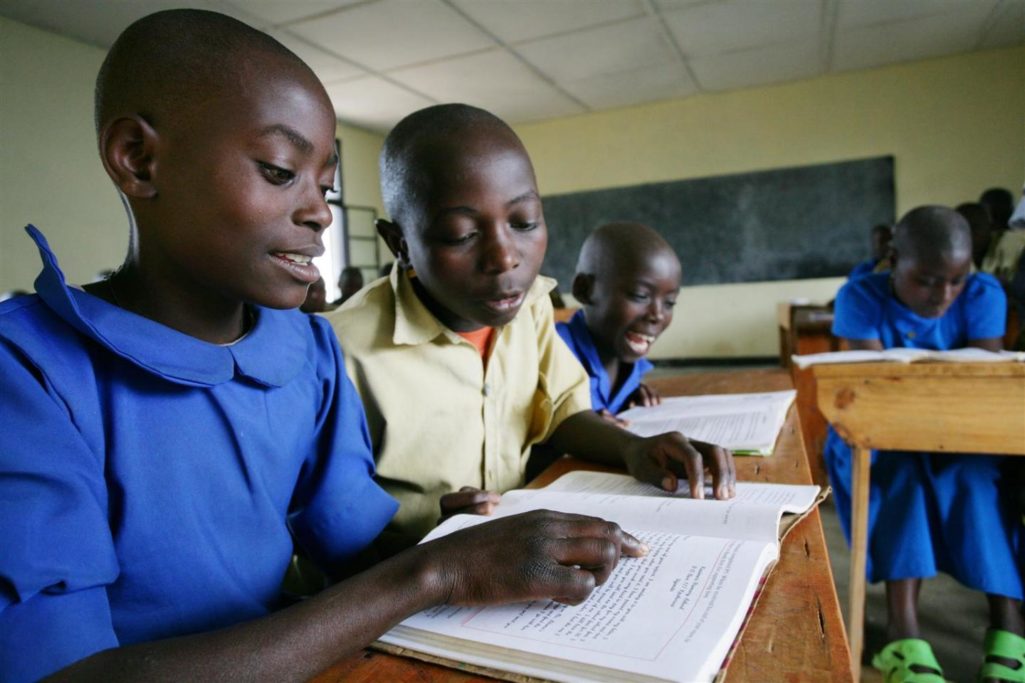Rwanda Is Hiring 300 Zimbabwean Teachers. Here’s Why

Rwanda and Zimbabwe reached an agreement that will see the recruitment of over 300 Zimbabwean teachers. This arrangement came after president Paul Kagame had made the request at a trade and investment conference. This is great news for Rwanda despite being one of the best performers in terms of education in sub-Saharan Africa. Well, this good performance is on one side, there is more to be done. Moreover, improvements in health, tourism, among other sectors were also part of the agreement resulting from the trade conference.
The ministry of education noted that the teachers will give lessons in associate nursing schools and the college of medicine and health sciences. The recruitment batch consists of 273 TVET teachers and 33 teacher training colleges. Clearly, more emphasis was put on tertiary education. The big question is why the importation of teachers?
Education in Rwanda

Rwanda has one of the highest percentages of admission of children in primary schools. However, there is a problem with the transition to higher learning. According to UNICEF, only about 71% complete primary education in Rwanda. Among other reasons, this number is high due to the low teacher-student ratio. Apparently, for every 62 students, there is one qualified teacher. Top that with poor education systems and there goes a recipe for failure.
Primary education is paramount for learner development. As such, children need a close relationship with teachers. By doing so, students grasp the foundational literacy and numeracy skills that will be required as they progress in the following levels of education. Such results can be achieved by streamlining systems and personnel in education. Luckily, Paul Kagame knew this too well, hence, the request for more qualified teachers from Zimbabwe.
Why Rwanda is Recruiting Zimbabwean Teachers
It was somewhat unusual for President Kagame to request teachers during a trade and investment conference. Quoting him, Kagame said, “before equipment, I want people. I think Zimbabwe can offer us good teachers”. President Kagame is a visionary leader who understands that investing more in education will create an enabling environment for trade and investments.
The teachers are part of a larger scheme of improving cooperation and partnership between the two countries. What does this mean? The big picture is what counts in this MoU. The minister of education in Rwanda noted that there were two key things that the agreement would yield. Part of the job of the imported workforce will be designing the terms of reference for the recruitment of the teachers. Additionally, they will draft what needs to be improved in the Rwandan education sector as well as other parts of the economy.
For Rwanda, the end goal of this MoU is to create a knowledge-based economy that will help steer the country forward. Similarly, the decision to prioritize recruiting teachers for institutions that teach educators will help Rwanda improve her teaching workforce. Therefore, Rwanda and her education sector will eventually become self-sustainable.
Recreating this Framework in other African Countries
Trading teachers. Zimbabwe is sending 303 teachers to Rwanda, where schools open Jan 10 – 273 Technical and Vocational Training teachers and 33 instructors for Teacher Training Colleges. Rwanda wants Zim to hire its own teachers to fill skills gaps. https://t.co/aMWFYis0yT pic.twitter.com/80dgRPxX6P
— James Hall (@hallaboutafrica) December 26, 2021
Rwanda and Zimbabwe have a common goal to development that is influenced mainly by a rough past. They both share a history of poverty that drives their resilience and aim for success. Consequently, the common focus is one of the major reasons for the continued cooperation.
Memorandums of Understanding can improve cooperation and pave the way for resource sharing among countries. The broader agenda of getting Africa to standards of first-world economies will depend on such acts. Hence, exchanging resources will go a long way in opening up countries to opportunities.
African nations are full of resources. If these resources are utilized well, the whole of Africa will benefit. Consequently, there will be a reduction in aid dependency, industrialization, and much more. Regional integration, just like Rwanda and Zimbabwe have done, is an ideal starting point for other African countries. Governments can start by pushing for regional integration initiatives in this respect. Interregional cooperation will be a key accelerator of economic growth since it will enhance productivity, develop local infrastructure, and advance industry competition.







Responses